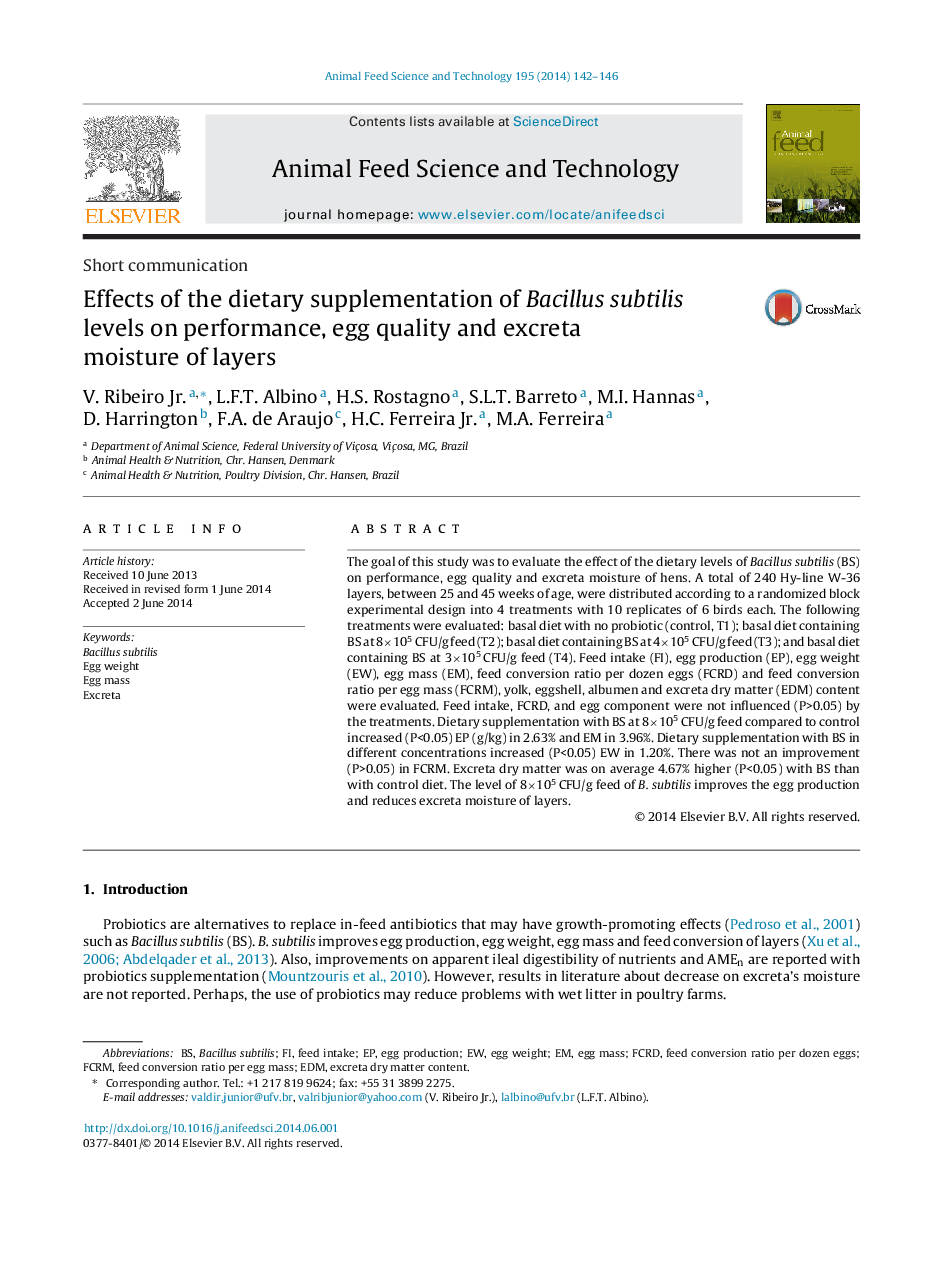| Article ID | Journal | Published Year | Pages | File Type |
|---|---|---|---|---|
| 8491696 | Animal Feed Science and Technology | 2014 | 5 Pages |
Abstract
The goal of this study was to evaluate the effect of the dietary levels of Bacillus subtilis (BS) on performance, egg quality and excreta moisture of hens. A total of 240 Hy-line W-36 layers, between 25 and 45 weeks of age, were distributed according to a randomized block experimental design into 4 treatments with 10 replicates of 6 birds each. The following treatments were evaluated: basal diet with no probiotic (control, T1); basal diet containing BS at 8Ã105Â CFU/g feed (T2); basal diet containing BS at 4Ã105Â CFU/g feed (T3); and basal diet containing BS at 3Ã105Â CFU/g feed (T4). Feed intake (FI), egg production (EP), egg weight (EW), egg mass (EM), feed conversion ratio per dozen eggs (FCRD) and feed conversion ratio per egg mass (FCRM), yolk, eggshell, albumen and excreta dry matter (EDM) content were evaluated. Feed intake, FCRD, and egg component were not influenced (P>0.05) by the treatments. Dietary supplementation with BS at 8Ã105Â CFU/g feed compared to control increased (P<0.05) EP (g/kg) in 2.63% and EM in 3.96%. Dietary supplementation with BS in different concentrations increased (P<0.05) EW in 1.20%. There was not an improvement (P>0.05) in FCRM. Excreta dry matter was on average 4.67% higher (P<0.05) with BS than with control diet. The level of 8Ã105Â CFU/g feed of B. subtilis improves the egg production and reduces excreta moisture of layers.
Related Topics
Life Sciences
Agricultural and Biological Sciences
Animal Science and Zoology
Authors
V. Jr., L.F.T. Albino, H.S. Rostagno, S.L.T. Barreto, M.I. Hannas, D. Harrington, F.A. de Araujo, H.C. Jr., M.A. Ferreira,
